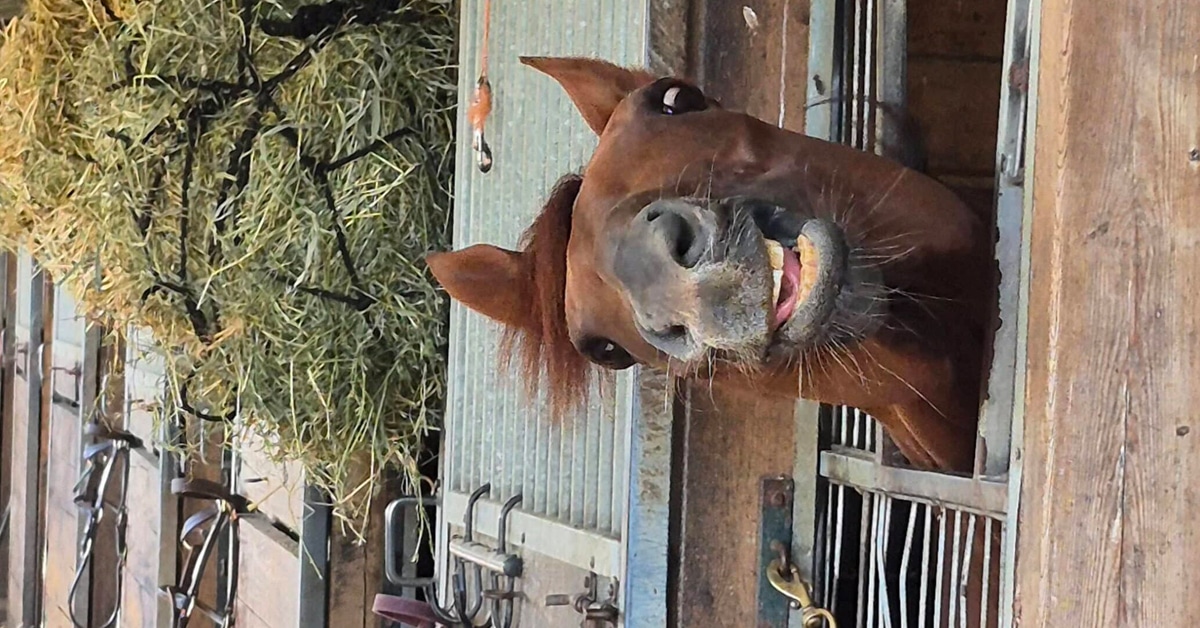As reported on April 23rd, a horse in Wellington County tested positive for Equine Herpes Myeloencephalopathy (EHM), caused by equine herpes virus 1 (EHV-1). The Ontario Racing Commission (ORC) has determined that this case did not involve a racehorse. However, they are still urging owners to take precautions against the spread of disease and to report any possible cases.
Outbreaks of neurological EHV-1 are contagious and have a significant risk of mortality. Anything that touches an infected horse or carries secretions or manure from sick horses has the potential to transfer pathogens to other horses.
ORC Manager of Veterinary Services Dr. Adam Chambers believes this case will likely not impact racing in Ontario, but he reminds participants to use caution and take appropriate biosecurity measures. For example, racetrack management need to maintain aggressive disinfectant programs in ship-in barn areas. Further, as a standard practice, trainers should continue checking their horse’s temperature prior to shipping into an Ontario racetrack.
The Ontario Ministry of Agriculture and Food (OMAF) tracks cases of Equine Neurological Disease in Ontario. Racing participants are encouraged to regularly check this OMAF website.
Click here for OMAF Surveillance 2013 information.
Prevention Tips from Equine Guelph
1. Isolate affected or exposed horses but don’t move from farm.
2. Isolate new horses for minimum two weeks.
3. Horses can carry EHV-1 virus for life and can become contagious if stressed (i.e. strenuous exercise or transport).
4. A healthy horse can spread the virus.
5. Virus is spread by direct horse-to-horse contact through nasal secretions and it can also spread through contact with contaminated tack and equipment.
EHV-1 is a viral infection which can cause:
• Respiratory disease
• Abortion
• Death in newborn foals
• Neurological form of herpes
Care should include:
• Horses suspected to be actively shedding virus should be examined by a vet
• Infected and exposed horses should be isolated immediately
• Discuss vaccination plan with your vet (often particularly important for broodmares)
Check for fever. It is one of the most consistent clinical signs, and commonly precedes the development of other clinical signs.
More News









